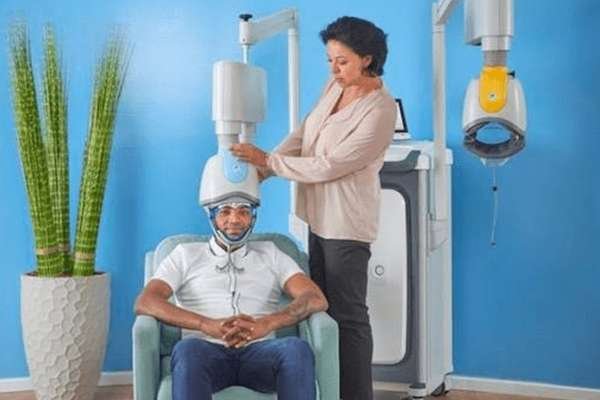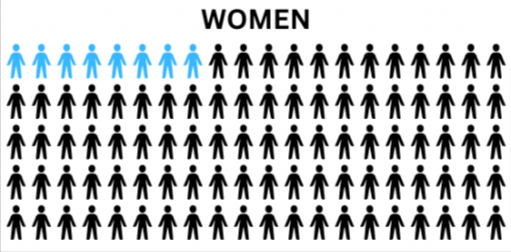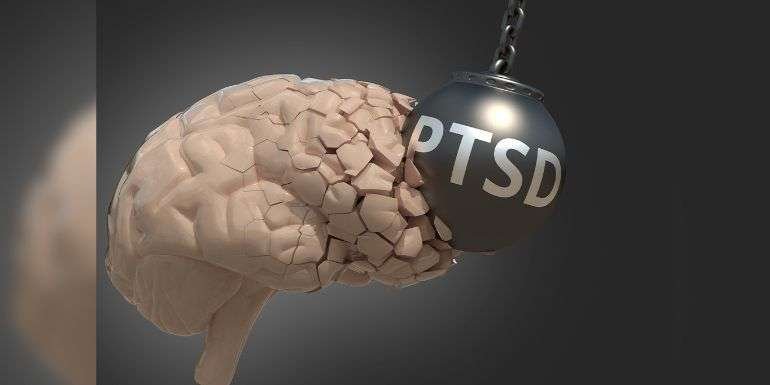Best Affordable Psychiatrist Clinic for Brain Stroke Treatment in Gurugram at Positive Mind Care
A brain stroke occurs when the blood supply to part of the brain is interrupted...

Positive Mind Care and Research Centre is a leading mental health care facility of Delhi – NCR, dedicated to helping individuals to overcome Major Depressive Disorder and reclaim their joyful lives through a unique breakthrough technology called Deep Transcranial Magnetic Stimulation (Deep TMS), which can reach significant depth and breadth of the brain and produce broad stimulation and functional modulation of targeted brain areas to help treat MDD.
Deep TMS treatment features unique, patented coils that are fitted into a helmet, which is secured snugly to the patient’s head during the treatment. We are using BrainsWay’s therapy, which has been utilized in over 60 clinical trials worldwide. The company’s device has been FDA approved for the treatment of Major Depressive Disorder (MDD) since 2013, FDA cleared (De-Novo) for the treatment of Obsessive Compulsive Disorder (OCD) since 2018, FDA cleared as an aid for short-term Smoking Cessation since 2020, and has now received an expanded indication for Anxious Depression.
Post-Traumatic Stress Disorder (PTSD) is a mental health condition that can develop in individuals who have experienced or witnessed a traumatic event. It is a type of anxiety disorder that can have long-lasting effects on a person’s emotional, psychological, and physical well-being. PTSD can affect anyone, regardless of age, gender, or background, and the severity of the symptoms can vary from person to person.
PTSD can significantly impact a person’s quality of life, relationships, and ability to function effectively. It is essential to seek professional help if someone is experiencing symptoms of PTSD, as early intervention can lead to better outcomes.
Treatment for PTSD often involves psychotherapy, such as cognitive-behavioral therapy (CBT) or eye movement desensitization and reprocessing (EMDR), which helps individuals process the trauma and develop coping strategies. Medications, such as antidepressants or anti-anxiety drugs, may also be prescribed to manage specific symptoms. With appropriate treatment and support, many people with PTSD can experience significant improvement in their symptoms and overall well-being.
About 8 in 100 women and 4 in 100 men suffer from PTSD at some point in their life.


Post-Traumatic Stress Disorder (PTSD) is a mental health condition that can develop after experiencing or witnessing a traumatic event. Symptoms of PTSD can vary from person to person and may manifest in different ways. The symptoms are generally categorized into four main clusters:
– Distressing or recurrent memories of the traumatic event.
– Nightmares related to the trauma.
– Flashbacks, feeling as if the traumatic event is happening again.
– Intense emotional distress or physical reactions when exposed to reminders of the trauma.
– Avoiding thoughts, feelings, or conversations related to the trauma.
– Avoiding places, people, or activities that remind one of the traumatic event.
– Difficulty recalling important aspects of the trauma.
– Persistent negative emotions (e.g., fear, guilt, shame, anger).
– Feeling emotionally numb or detached from others.
– Decreased interest in activities once enjoyed.
– Difficulty experiencing positive emotions.
– Negative beliefs about oneself, others, or the world.
– Difficulty trusting others or forming close relationships.
– Irritability and anger outbursts.
– Reckless or self-destructive behavior.
– Hypervigilance (constantly being on guard) and an exaggerated startle response.
– Problems with concentration and sleep disturbances.
It’s essential to note that these symptoms must persist for more than a month and significantly interfere with daily life functioning to be considered PTSD. If you or someone you know is experiencing these symptoms, it’s crucial to seek professional help from mental health professionals. Treatment options such as therapy (e.g., cognitive-behavioral therapy) and, in some cases, medication can be effective in managing and overcoming PTSD.

Provides a convenient and flexible approach to treatment, allowing patients to receive care while maintaining their daily routines.
A non-invasive procedure that targets specific areas of the brain associated with depression. This innovative treatment option has shown promising results in reducing symptoms of MDD and is FDA approved.
A supportive and empathetic environment to express thoughts, emotions, and experiences, develop coping strategies, and gain insights to improve overall well-being.
Our center combines expert medical care with a compassionate and supportive environment, empowering individuals to reclaim their lives.
Cultivate awareness, reduce stress, and enhance overall well-being through meditation, yoga, and other practices to keep you grounded.
Our center combines expert medical care with a compassionate and supportive environment, empowering individuals to reclaim their lives.
Deep Transcranial Magnetic Stimulation (Deep TMS) is a non-invasive brain stimulation technique that has been studied as a potential treatment for various neuropsychiatric conditions, including smoking addiction. While the research in this area is still ongoing, Deep TMS has shown some promising results in helping individuals with smoking addiction. Here’s how Deep TMS may help in treating smoking addiction:
We at Positive Mind Care and Research Centre, a new generation mental health clinic, are dedicated to providing the highest quality care and research in the field of mental health. We take a positive and holistic approach to mental health, focusing on the individual as a whole and their unique needs and circumstances. We are committed to using evidence-based scientific treatment methods, conducting research, and providing education and outreach to the community. Remember that you are not alone, and we are here to help you on your journey towards betterment!
A brain stroke occurs when the blood supply to part of the brain is interrupted...
Addiction is a serious and life-altering condition that can disrupt both the personal and professional...
Anxiety is a common mental health issue affecting millions of individuals globally. It manifests in...
Learn more about how Positive Mind Care innovative TMS treatment technology can be effective in treating psychiatric disorders.
Learn more about how DEEP TMS treatment technology can be effective in treating neurological disorders.
Disclaimer:- The information provided on this website is for informational & educational purposes only and should not replace professional medical advice. Please consult with a qualified healthcare provider for personalized treatment recommendations.
Copyright © 2023. Positive Mind Care. All Rights Reserved